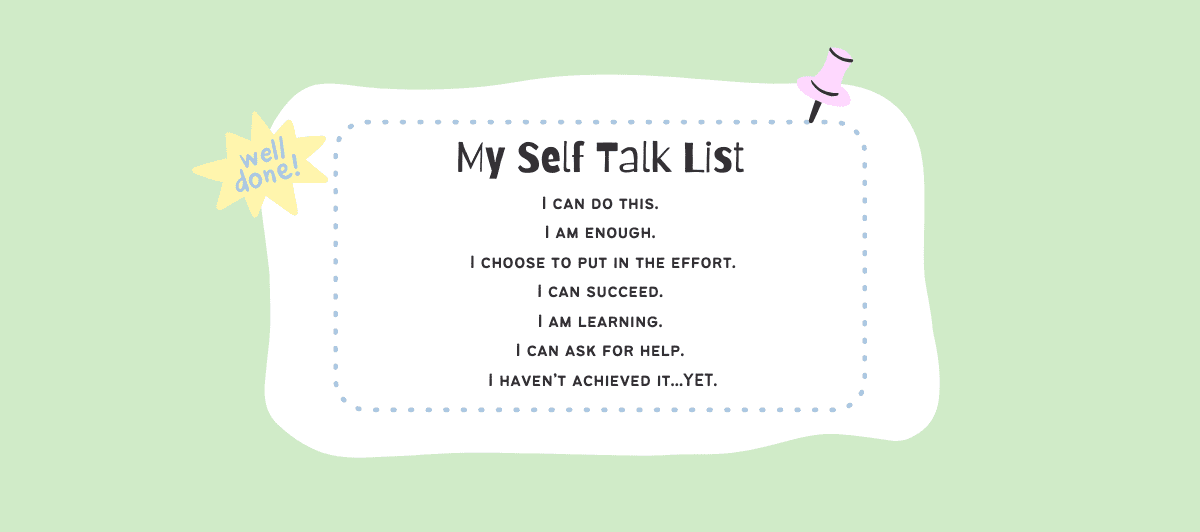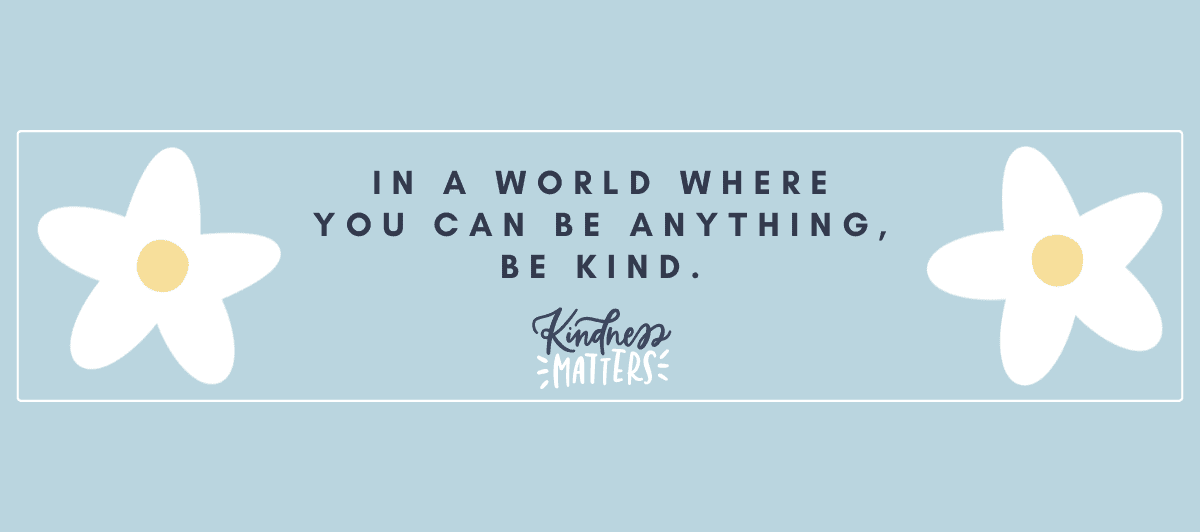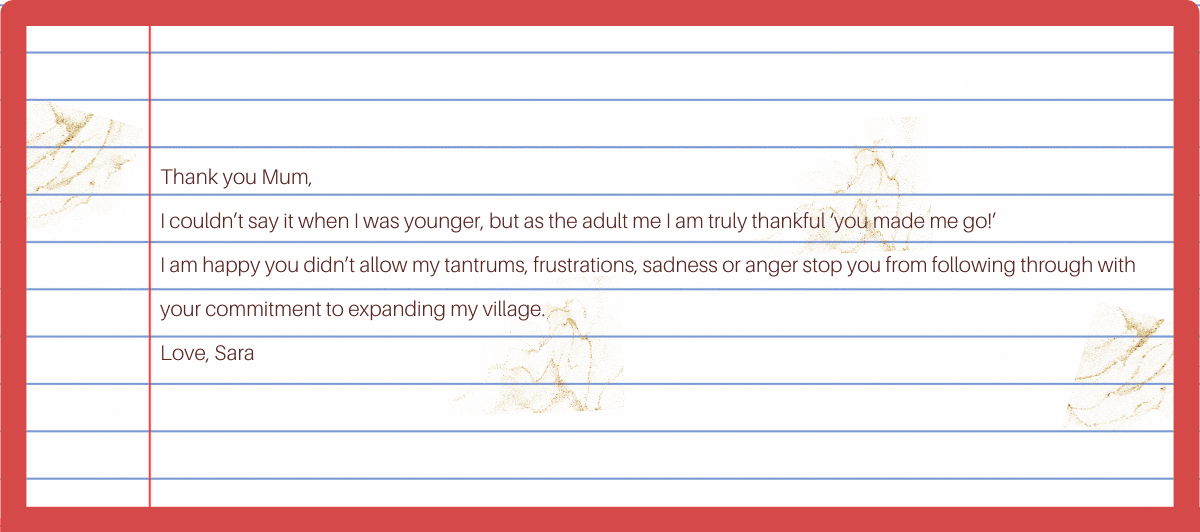
How to Help a Child’s Negative Self-Talk
Kids are constantly encountering new experiences and challenges which can trigger uncomfortable emotions causing them to speak negatively about themselves. No one wants to hear a child putting themselves down.
Positive self-talk is about speaking to themselves with compassion, empathy, kindness and respect.
Benefits of Positive Self-Talk
- Builds self-esteem
- Enhances emotional & mental well-being
- Improves self-regulation
- Boosts confidence in their own abilities
- Influences their choices & decisions
- Develops resilience
Tips to Promote Positive Self-Talk
Emotions – Kids want to know that they are not bad, nor wrong for feeling how they feel. We all feel a wide range of emotions. They can feel angry, frustrated, disappointed and still show respect for themselves, others and their dreams. Kids need to be reminded, ‘It’s ok to feel.’ These words provide both comfort, validation and connection.
Reframing – Redirect their thoughts by asking them questions like: ‘What is one lesson you learned from this experience?’ or ‘Who could you ask to help support you?’ or ‘ What could you do differently the next time?’ Helping them see the circumstance through a different lens helps them to learn and grow.
Model positive self-talk – Modelling what you want children to learn is the best way to teach. If you find you are putting yourself down, admit it. Use it as a teachable moment. Let’s face it – we’re not perfect! Let them know what you wish you would have said.
Recognize their talents & strengths – Even though it’s important for them to recognize negative thoughts and uncomfortable feelings, they can learn to reframe their mindset and focus on their strengths. Have them create a list of their talents & strengths to have a visual reminder.
Gratitude – Choosing to focus on something they are grateful for is a powerful mindset shift that helps them bounce back from challenging times and move though tough emotions. Since their brain can only focus on one thought at a time, choosing to look at what they are grateful for (especially during difficult times and mistakes made) is a powerful practice that strengthens resilience. Ask them, ‘What could you be grateful for from the challenge or mistake?‘
Over time what children repeat determines their belief about themselves and their abilities. Below is a list of phrases your child/student can use to remind them that what they say matters to their confidence, resilience & well-being.
Until next time…



